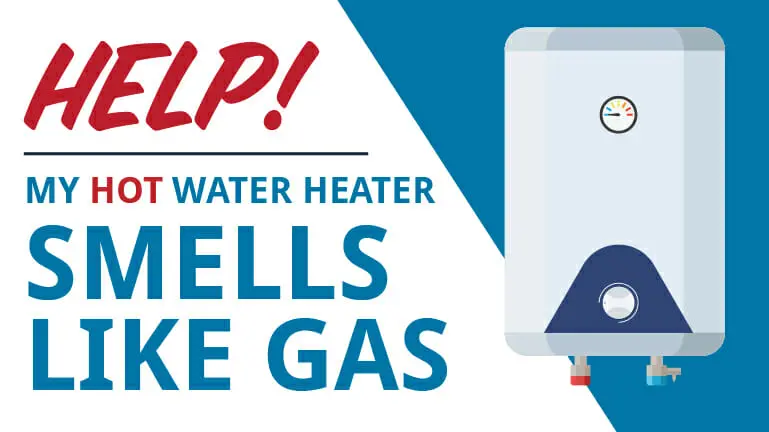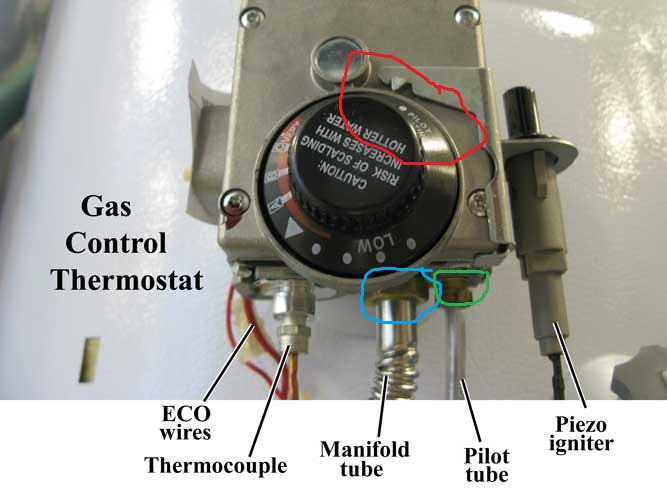Have you ever noticed a strange, gas-like odor coming from your water heater? It can be alarming, leaving you worried about potential dangers lurking in your home.
You’re not alone—many homeowners experience this unsettling issue, and it’s crucial to understand what it means for you and your family’s safety. We’ll unravel the mystery behind the gas smell, explain why it happens, and guide you through the steps to tackle it effectively.
Stay with us to ensure your home remains a safe haven, free from potential hazards. Your peace of mind is just a few paragraphs away.
Identifying Gas Smells
Have you ever walked into your home and been greeted by an unusual smell coming from your water heater? If it smells like gas, it’s time to take action. Identifying gas smells is crucial for your safety. Understanding what could be causing these odors can help you address potential issues before they escalate.
Common Causes
Gas smells around your water heater could stem from several sources. A common culprit is a faulty gas valve. If it’s not sealing properly, gas can leak and cause that distinctive smell. Another possible cause is loose or damaged connections in the gas line. These can occur over time due to wear and tear or during installation. Venting issues can also contribute to gas odors, especially if the vent is blocked or not functioning correctly.
Signs Of A Gas Leak
Recognizing the signs of a gas leak can protect you and your home. One of the most obvious signs is the smell itself, often described as resembling rotten eggs. You might also notice a hissing sound near the gas line or connections. Another indicator could be dead or dying plants around the outside gas line. In extreme cases, you might feel dizzy or lightheaded due to gas exposure. If you detect any of these signs, it’s essential to act quickly and ensure your safety.
Have you considered what steps you would take if you noticed these signs in your home? Ensuring you know how to respond can make all the difference in an emergency.
Regular maintenance and inspections can prevent these issues. Consider scheduling annual check-ups with a professional to keep your water heater in optimal condition. What measures are you taking to ensure your home remains safe and free from gas leaks?

Credit: www.reddit.com
Immediate Safety Measures
When a water heater smells like gas, immediate action is crucial. Gas leaks can be dangerous, posing risks to health and safety. It’s essential to follow safety measures without delay to prevent accidents.
Evacuate The Area
First, leave the premises immediately if you smell gas. Ensure everyone in the building exits quickly. Move to a safe distance away from the structure. Avoid returning until professionals confirm it’s safe.
Ensure pets are also taken outside. Don’t wait or try to solve the issue alone. Prioritize getting everyone out swiftly. Call emergency services once you are at a safe distance.
Do Not Use Electrical Devices
Avoid using any electrical devices when you smell gas. Turning on switches might ignite the gas. Don’t use phones or flashlights near the suspected leak. Use a phone outside to call for help.
Even unplugging devices can be dangerous. Resist the urge to check or fix anything yourself. Wait for experts to handle the situation safely.
Contacting Authorities
Detecting a gas smell near your water heater is alarming. It’s crucial to act swiftly to ensure safety. Gas leaks can lead to dangerous situations. Quick action can prevent harm. Knowing when and who to contact is vital.
When To Call Emergency Services
Smell a strong gas odor? Evacuate immediately. Call emergency services without delay. Gas can be explosive and dangerous. It’s better to be safe than sorry. Emergency responders are trained for these situations. They will secure the area and ensure your safety.
Informing The Gas Company
After ensuring safety, contact your gas company. They have experts to handle gas leaks. Inform them about the situation promptly. The gas company will inspect and fix the issue. Quick reporting helps prevent potential hazards. Their response can keep your home safe.

Credit: appoloheating.com
Preventive Maintenance
A gas-like smell from your water heater signals a need for immediate attention. Regular preventive maintenance helps identify leaks early, ensuring safety. Always prioritize safety checks to avoid potential hazards and maintain a safe home environment.
Maintaining your water heater is not just about keeping it running smoothly; it’s also crucial for safety. A water heater that smells like gas can be a ticking time bomb if not addressed promptly. Preventive maintenance can help you avoid such dangerous situations. Regular checks and smart installations can keep your home safe and your mind at ease.Regular Inspections
Regular inspections are your first line of defense. You don’t have to be a professional to spot early signs of trouble. Check for any unusual smells or sounds coming from your water heater. Set a reminder to inspect your water heater every few months. Look for rust, leaks, or any signs of wear and tear. Even a small gas leak can be detected by its distinct smell. Think of it like a routine health check-up for your appliance. It helps catch issues before they escalate. Ignoring small problems can lead to costly repairs or replacements.Installing Gas Detectors
Installing gas detectors is a smart move. They are like smoke alarms but for gas leaks. Having one near your water heater can save your life. Gas detectors are easy to install and affordable. Place them in strategic locations like the basement or garage where your heater is located. This adds an extra layer of safety. Imagine waking up to a faint beep alerting you to a gas leak. It’s a small investment that offers peace of mind. Are you willing to gamble on not having one? By paying attention to preventive maintenance, you ensure safety and efficiency. Your water heater will thank you, and so will your family. Stay proactive and keep those gas smells at bay!Professional Repair Services
When your water heater smells like gas, it’s time to act quickly. Professional repair services are essential in addressing this issue. Gas odors signal potential dangers, requiring expert attention. A certified technician can diagnose and fix the problem efficiently. Let’s delve into the advantages of choosing professional repair services.
Choosing A Certified Technician
Choosing a certified technician ensures your safety and peace of mind. Certified technicians have the right training and expertise. They understand gas-related issues better than anyone. A certified expert can identify and resolve the problem fast. This reduces the risk of further complications. Always check for certifications and licenses. This guarantees the technician’s competence and reliability.
Repair Vs Replacement
Deciding between repair and replacement depends on the condition of your heater. A professional can provide a thorough assessment. Repairs might be sufficient for minor issues. Replacement becomes necessary if the damage is extensive. Older units might benefit more from replacement. Newer models offer better energy efficiency. Consult with your technician to make an informed decision. They can guide you based on cost and efficiency.

Credit: diy.stackexchange.com
Understanding Gas Appliances
Experiencing a gas smell from a water heater may indicate a leak, requiring immediate attention. Ignoring the odor could lead to safety risks. Check connections and ventilation to ensure safe operation.
Understanding gas appliances is crucial for maintaining a safe and efficient home. Gas appliances, including water heaters, are common in many households due to their efficiency and effectiveness. However, understanding how they work and the potential risks involved is essential to prevent mishaps.How Water Heaters Work
Water heaters are ingenious devices that provide hot water for your home. They operate by burning natural gas, which heats the water stored inside the tank. This process is generally quiet and efficient, but a gas smell could indicate a serious issue. Have you ever noticed that your morning shower isn’t quite as warm? This could be a sign that your water heater is struggling. Regular maintenance helps ensure that your appliance functions optimally, delivering hot water whenever you need it.Potential Risks
A gas smell from your water heater should never be ignored. This can signal a gas leak, which poses a risk of fire or explosion. Detecting these odors early is vital for your safety and peace of mind. Ask yourself: when was the last time you checked your water heater? Regular inspections can catch potential problems before they become dangerous. Always prioritize safety by consulting a professional if you detect a gas odor near your appliances. Understanding these elements can help you keep your home safe and your water heater running smoothly. Always stay proactive and attentive to ensure your appliances are in top shape.Frequently Asked Questions
Why Does My Water Heater Smell Like Gas?
A gas leak may cause this odor. Check for loose connections. Ensure proper ventilation. Call a professional if needed.
Is A Gas Smell From The Water Heater Dangerous?
Yes, it can be. Gas leaks are hazardous. They may cause explosions or health risks. Contact a technician immediately.
How Do I Fix The Gas Smell In My Water Heater?
Inspect for leaks. Tighten connections carefully. Ventilate the area. If unsure, hire a qualified plumber.
Can A Water Heater Gas Smell Affect Health?
Yes, it can. Prolonged exposure may lead to dizziness or nausea. Ensure proper ventilation. Seek medical help if symptoms persist.
What Should I Do If I Smell Gas Near The Water Heater?
Turn off the gas supply. Open windows for ventilation. Avoid using electrical devices. Contact a professional immediately.
Conclusion
Gas smells from your water heater require quick attention. Ignoring this issue can be dangerous. Ensure safety by checking all gas connections. Seek professional help if needed. Regular maintenance can prevent future problems. Keep your home safe by being proactive.
Trust your instincts if something smells wrong. Safety should always come first. Always take gas odors seriously. Your home’s safety is worth the effort. Stay alert and informed. Regular checks can save both money and stress. Simple steps lead to peace of mind.





